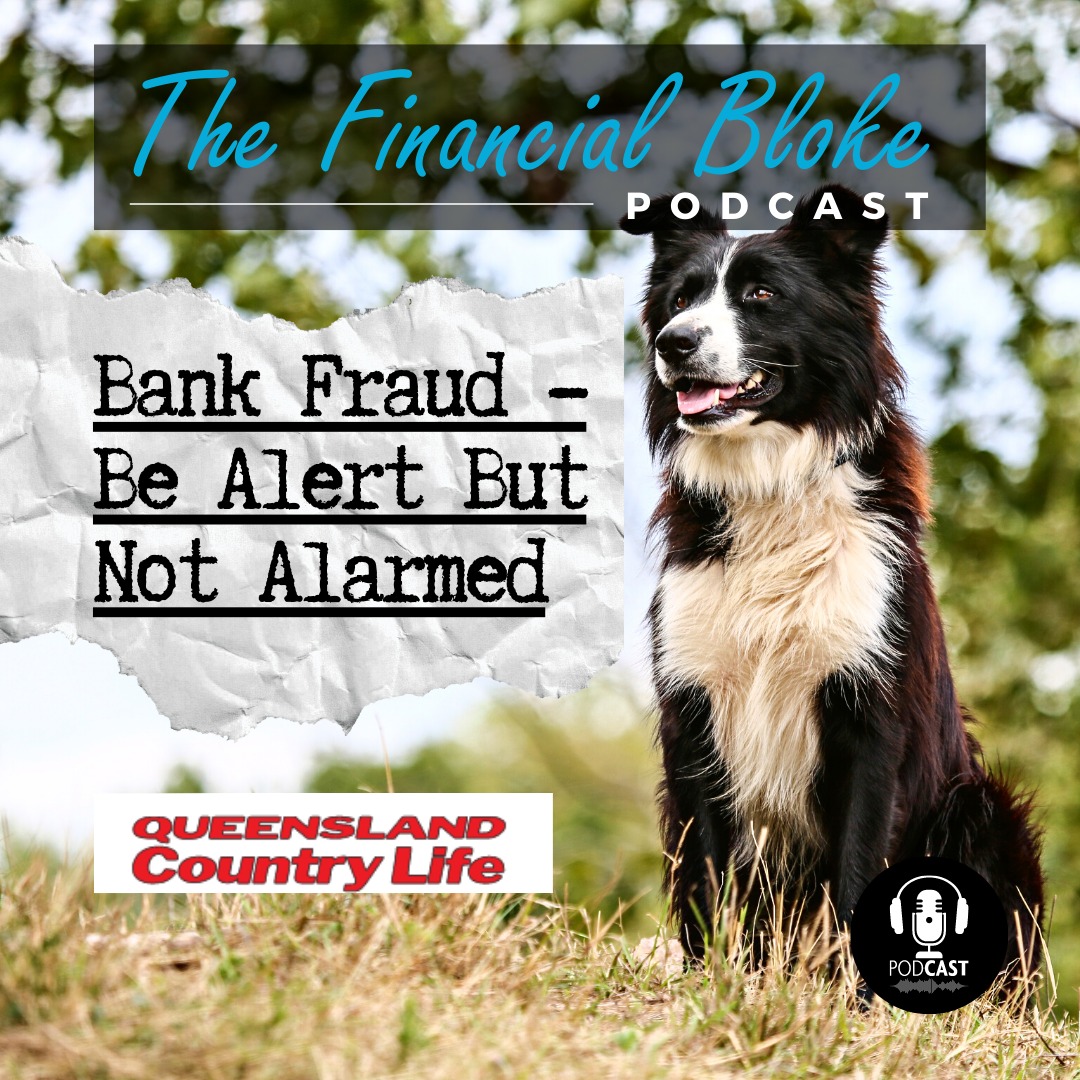
My latest column in The Queensland Country Life.
My wife is a Computer Systems engineer, making her more aware than most of the threat of identity theft and being scammed or hacked. Consequently, we’ve got top notch virus protection on all our devices, we use a secure password manager, we don’t use public Wi-Fi networks, we take extra care when opening emails and we are cautious where we use our credit cards. I expect we do far more than the average Joe.
So it wasn’t a big surprise when she recently suggested we up the security of our client invoicing and started checking our bank accounts daily. With cyber crime on the rise I didn’t really disagree but I did feel she was being a little over the top. Whilst we are cyber aware, most of our friends don’t really give cyber security much thought.
But then at 9pm last night she hot footed it into the lounge room, shaking her iPhone at me shouting that $7,000 was missing from our business account. What? I checked my internet banking and she was right, a $7,235.65 pending transaction at a well-known New York high end jewellery store was showing on our account.
After some digging, we worked out a linked debit card had somehow been used so we quickly cancelled the card online, then invested 2 hours waiting to talk to a human about reporting and cancelling the transaction. We were lucky, we caught the transaction the same day and it was reversed overnight.
My wife’s compulsive daily checking of our accounts had saved us $7,000 but how had it happened in the first place? No one knows for sure, the debit card and bank account were only a couple of months old and the card had never been used. The bank suggested it could be a scammer using a sophisticated random number generator and they just got lucky with our debit card.
What I have learned is that even with all the necessary protections in place, it can still happen. And what saved us wasn’t fancy software, it was good old-fashioned vigilance.
We’re not alone. I personally know over half a dozen people in the bush or with agribusinesses who have been the victim of scamming or fraud in the past 12 months. The amounts ranged from a couple of hundred dollars up to almost $300,000. You may be surprised to learn that most of them are very smart people, and they were either unlucky or had been caught by an extremely convincing scam. Mistakes any of us could make!
As reported by ASIC in their most recent Cyber Crime report, cyber crime is estimated to cost the Australian economy over $33b and is up 13% from the previous financial year. More importantly though, the average loss for a small business (including agribusiness) is almost $40k, which is not insignificant!
So I have a few suggestions for you:
1. Use strong passwords, update them regularly and use a unique password for every account (a secure password manager will help with this).
2. Keep your software updated.
3. Talk to your kids about being cyber aware.
4. Be overly cautious when opening any emails or attachments.
5. And my hot tip for paying invoices: When you need pay a supplier for the first time, call them beforehand and verbally confirm the bank account details as invoice capture and fraud is rampant, and it’s very hard to recoup the money once it’s gone.
Above all check your accounts daily and as the old saying goes, “Be alert, but not alarmed!”

